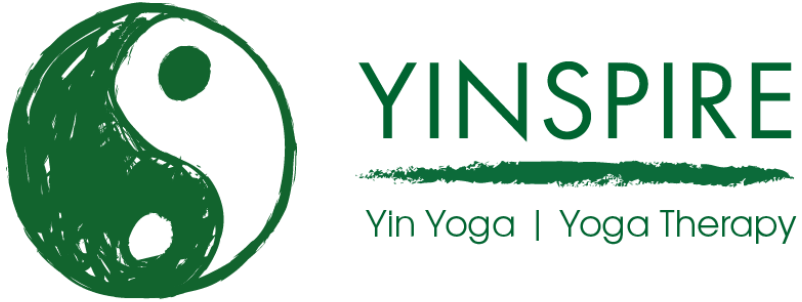 You may have seen me use the term “Yoga Therapy” in social media, and indeed on this site – so whats it about? What makes Yoga into Yoga Therapy?
You may have seen me use the term “Yoga Therapy” in social media, and indeed on this site – so whats it about? What makes Yoga into Yoga Therapy?
What is Yoga Therapy About?
Yoga Therapy uses Yoga practices on a tailored basis to help with wellbeing and health issues, on a whole person basis – so rather than trying to fix specific problems as a shopping list, Yoga Therapy endeavours to give you the space, skills and resources to find your own solutions; it is a collaborative approach rather than directive.
The Complimentary and Natural Health Care Council define Yoga Therapy as follows:
Those who wish to develop their natural well-being may find yoga therapy a useful route. Yoga therapy is taught by yoga teachers with additional training and experience in the therapeutic adaptation and application of yoga. People may be taught one-to-one or in a therapy group setting.
Yoga therapy may help with many issues and can be appropriate for a wide range of ages and lifestyles as well as those looking for a healthier way of life. All that is needed from the participant is the desire to help her or himself and the willingness to practise regularly.
Through practising a yoga therapy programme the participant may, for example, become more aware of posture and breathing. She/he may also find regular practice can help to promote relaxation, aid sleep and relieve tension; it may help to contribute to an increased sense of well-being and a positive mood.
In a typical first yoga therapy session a medical history will be taken by the yoga therapist. The body, posture, simple movements and the breath may be observed and issues and concerns discussed. Working with yoga therapeutically is about the whole person.
The yoga therapist will then assess how yoga therapy may help before planning and teaching a practice tailored to the needs of that individual. Practices may include one or more of a range of techniques such as posture work, breathing, relaxation, working with sound, reflection, and/or meditation. A number of sessions are likely to be needed to confirm safe and appropriate practice.
My own particular interests for Yoga Therapy as a practitioner include:
- Stress, anxiety and confidence
- Back complaints
- Long term rehabilitation and adaptation from injury and surgery (physical, and psycho emotional)
- Digestive health
However this list is not exclusive – I am happy to work with most physical, mental and emotional issues, and will tell you honestly if I feel I cannot add value to any particular situation. Some other conditions where Yoga Therapy is considered beneficial include: Depression, Parkinsons, Dementia/ Alzheimer’s, Immune Conditions, Chronic Pain Conditions, PTSD, ADHD, Schizophrenia, Eating Disorders, Addictions, Digestive Health, Asthma / COPD, support during Cancer treatment, Chronic Fatigue.
How Do You Deliver Yoga Therapy?
I have two routes:
First, yoga therapy is woven into all the classes I teach as its now a key element of how I practice. – learn more about Yoga Classes with me
Secondly I offer Private Yoga Therapy sessions on an individualised basis – learn about Private Yoga Therapy sessions
Surely All Yoga Is Therapeutic?
To a degree, yes, however what differentiates Yoga Therapy is that practices are selected specifically with therapeutic value in mind, and as well as training in Yoga, a Yoga Therapist will also have an understanding of common conditions and how they are best supported – and indeed not aggravated – by Yoga, and the Yoga Therapist will bring that knowledge into the session.
Yoga Therapy also benefits from an awareness of research evidence, and latest research findings educate best practice.
So Yoga Therapy can be seen as building on your typical yoga class, rather than either duplicating it or completing with it – a continuum.
